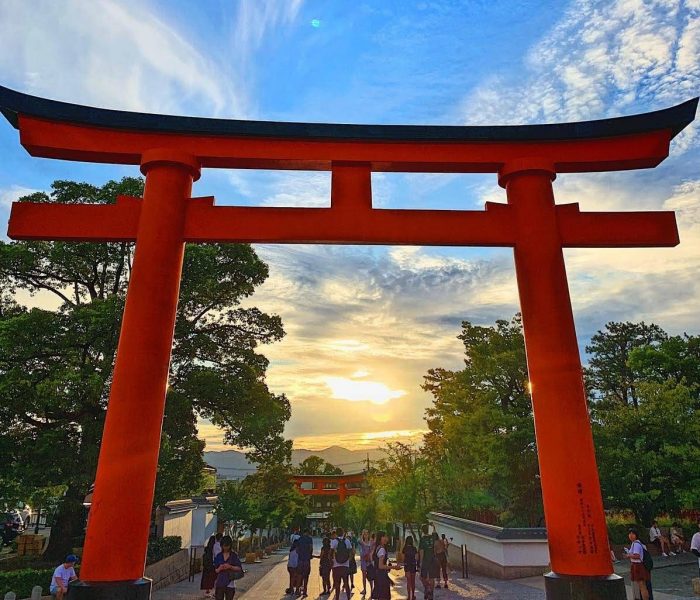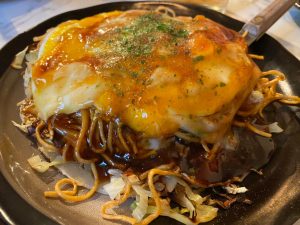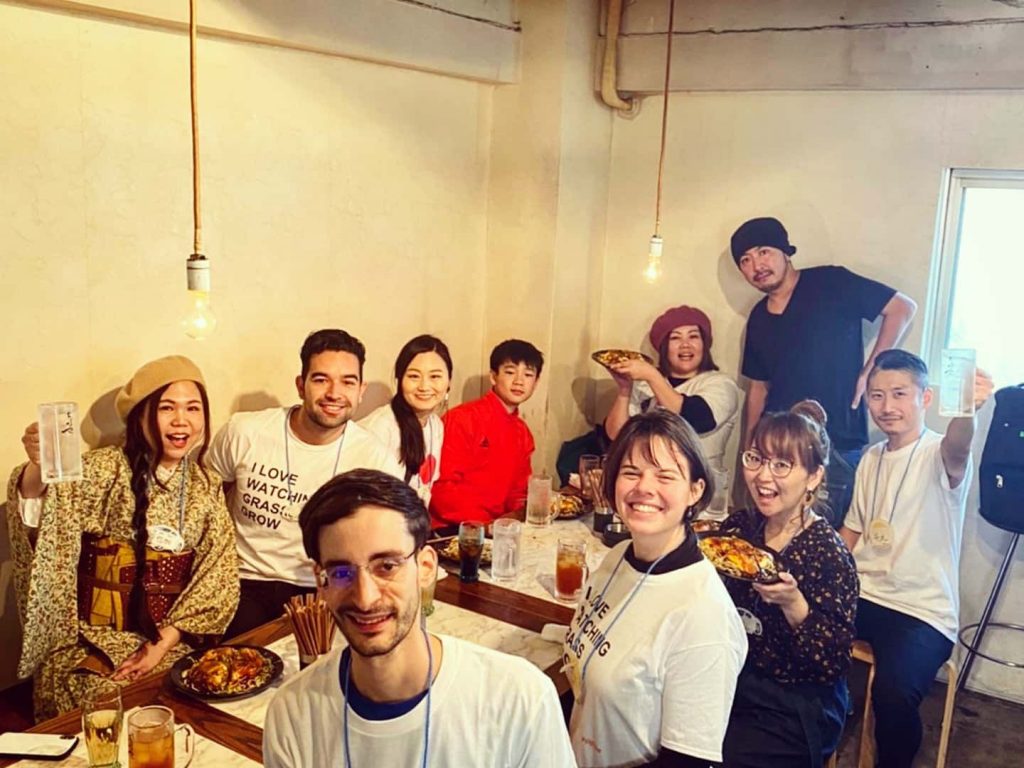By Sage Panter from EIGLOBE
It doesn’t matter who you are or where you are, living in a foreign country is full of challenges. I am American and I live in Japan. I am going to talk about the challenges I have personally faced since I moved to here.

The 1st challenge is...
being a foreigner.
America is referred to as a “melting pot” country. A “melting pot” is a pot that has many different ingredients inside that melt together. When a country is called a “melting pot” it means a country with many different types of people inside that live together. So, growing up in America, I was used to seeing many different types of people who all lived there with me. People have different colored skin, speak different languages, worship many different religions, eat different kinds of food, but they are all American. Japan is not a “melting pot” country. Almost everyone has the same colored skin, speaks the same language, has very similar views on religion, and eats the same kinds of food. I am white and I speak Japanese with an accent and mistakes, so I am inescapably foreign in Japan. When I go out, someone is always looking at me, when I hang out with Japanese friends, I am always “the one foreigner” in the group. I am always in the spotlight, in both positive and negative ways, and this can be exhausting. The homogenous nature of Japan takes some getting used to.
Another (2nd) challenge is...
the language barrier.

It is difficult to learn a foreign language. It takes years of practice and hard work. I studied Japanese for three years at my University in America. I learned Hiragana, Katakana, some Kanji, and practiced a lot with grammar and vocabulary. However, speaking and understanding a foreign language outside the safety of a classroom is a different experience. People often say things I don’t expect and say it in a way I have never heard from a textbook or from my teachers. I have also had to learn things my Japanese teachers probably never thought to teach me. For example, in school we practiced introductions and how to give directions, and how to order food in a restaurant, but, since I’ve moved to Japan, I’ve had to learn how to speak in banks, city offices, doctor’s offices, and rental offices. Visits to places like this were just annoying when I lived in America, here they are almost scary. They are scary because I don’t know if I will understand everything or be able to explain myself properly. I took how easy these errands were for granted when I lived in America.
A 3rd challenge is...
a cash-based economy.

When I was a child in America, America was cash based, but since then, cards have become increasingly more popular. Now, it is uncommon to carry large amounts of cash and it is very rare for business to be cash only in America. As a result, during my adult life in America, I got used to handling cards almost exclusively. My wallets were very thin because I never carried coins, only cards. In Japan, I have had to get used to handling cash almost exclusively. This has come with unexpected challenges. For example, if I become lazy and stop using change when I purchase things, my wallet will rapidly fill with coins and become really heavy. Another example is online purchases. In both America and Japan, websites like Netflix and Amazon are popular. In America, I signed up for both of these services with my debit cards without thinking much about it. In Japan, I don’t have a credit card and debit cards don’t automatically come with a bank account like they do in America, so I’ve had to find other ways to pay for Netflix and Amazon.
A 4th challenge is...
Japan’s use of paper for everything.
In America, a lot of interactions, both simple and complex, have become digital. From surveys to ballots to job contracts, almost everything is digital or has a digital option in America.
In Japan, it seems to be the opposite. Just about everything requires a physical copy and a physical signature or stamp. In America, for many situations, I didn’t have to go any further than my home computer to accomplish something.

In Japan I have to go to two, sometimes three, different places to get one thing done because I need the physical paperwork and signatures from various people in order for it to be approved and finished.
My 5th challenge is...
Food.

I actually love Japanese food. Many of the stereotypical foods Americans are supposed to not like are not a problem for me. For example, I love fish, even raw fish. So, I don’t have a problem with Japanese food. My challenge is the food I can’t find. For example, America loves cereal and I am an American who loves cereal. Of course, Japan has cereal, but there are only four or five kinds here! In America, an entire aisle of the supermarket is devoted to cereal. There are dozens of different kinds, and its wonderful. I miss that. I also miss cheese. Japan has cheese, and some if it is quite tasty but I haven’t been able to find enough good cheese and it’s expensive. In America, I used to buy a huge block of quality, sharp cheddar cheese for under the equivalent of 300 yen. I also miss bread. I love Japanese bakeries, there are so many delicious and fun kinds of breads and pastries, but I miss dense, nutty bread. Dense, nutty bread is very hard to come by in Japan. The food I miss the most is probably American breakfasts. I love American breakfast diners. They are very affordable and it was a nice option on a weekend morning. I used to go to a breakfast diner down the road from my house in America, they had unlimited refills of coffee and huge stacks of pancakes with butter and syrup with a side of crispy bacon.

I have lived in Japan for over two years of my life now. Not that long, but long enough to deal with these challenges. I have discovered, when you just visit a place, it is possible to only see the beauty of it. When you live in a place, you see both the beauty and the ugly of it. No place is perfect, there are many things I know are imperfect about America. As an American, I know its imperfections very well. Now that I live in Japan, I am experiencing some of its imperfections as well, but I also still see it as a beautiful and exciting place to live.
It is my home right now and I don’t want to be anywhere else.

この記事は、どのくらい今の時点で理解ができるかを試してもらえ
コツは、諦めずに読み進めること!英語習得のために大事なインプ


